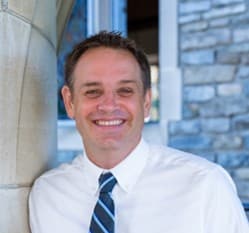The World Evangelical Alliance (WEA) deeply values the unity and theological orthodoxy of the global evangelical community. Therefore, we are profoundly concerned by both the content of recent statements and the way the Christian Council of Korea (CCK) has called into question the WEA’s theological positions, governance and moral integrity and practice in a public forum, especially without first approaching the leadership directly to discuss their concerns.
The issues raised are of great consequence for unity in the Korean Church ahead of the General Assembly in Seoul. Our hearts are to make ‘every effort to keep the unity of the Spirit through the bond of peace.’ (Ephesians 4:3). In line with this, we attempted to reach out to the CCK to initiate direct dialogue and discuss concerns, but our request was declined.
The World Evangelical Alliance deeply respects the right of the CCK to hold theological convictions they consider dear and sacrosanct. We recognize their sincere desire to preserve the authority of Scripture, maintain doctrinal clarity and protect the distinctiveness of the evangelical witness. We affirm these priorities and share their commitment to upholding the truth of God’s Word and the uniqueness of salvation through Jesus Christ alone.
Ecumenical and interfaith relations
Our engagement with leaders from other religious traditions is not a departure from our evangelical conviction, nor a pursuit of unity at any cost, but unity which is only possible with true believers saved by the blood of Jesus Christ.
Instead, as good stewards and Christ’s ambassadors, we seek global solutions for religious freedom and peacebuilding. Where these interest coincide, the WEA will engage other faiths for these societal issues. As stated in ‘The Resolution on Religious Freedom’ passed at the WEA’s General Assembly in 2008, the WEA differentiates between advocating the rights of members of other or no religions and endorsing the truth of their beliefs.
Regarding concerns expressed around the WEA’s association with Muslim organizations or the Catholic Church, our engagement is motivated by our shared interests such as opposing religious extremism or upholding the sanctity of all human life. A key policy within the International Council, the global governance body of the WEA, articulates WEA’s inter and intra-faith process of engagements to ensure that we never compromise the gospel.
The WEA will at times be called upon to attend global forums that require evangelicals to be well represented and these forums may include the World Council of Churches and the Vatican. The WEA’s participation in these forums is not an endorsement of beliefs and dogmas that are not Biblical but opportunities where the WEA is able to articulate our identity, voice, and strengthen the profile and credibility of evangelicals as a major stream of global Christianity—and deservedly so, as the estimated 600 million evangelicals worldwide roughly equal the total membership of all WCC communions.
Theological stance
The WEA is a membership organization that provides a place for fellowship, unity, collaboration, joint action and advocacy for global evangelicals, including individuals, churches, denominations, and organizations. Membership is based on adherence to the widely accepted and historical tenants that define evangelicals, including:
- The Bible is the Word of God and serves as our ultimate authority.
- Belief in Jesus’ death and resurrection is the only way for us to be saved to eternal life and we are called to tell others of this good news.
- Believers are indwelled with the Holy Spirit, who is active in our lives and in the world.
- Believers are called to proclaim and demonstrate the kingdom of God through private and public actions that create justice, truth and good for others.
The WEA’s role is not to choose one geographic or cultural expression of these tenets of evangelicalism as superior to all the others. The WEA respects the thousands of theological systems and church expressions arising from specific cultures, geography and history that clearly uphold these tenets. The WEA firmly believes in unity in diversity based on the core tenets of evangelicalism.
Governance and moral concerns
We also acknowledge questions have been raised regarding specific individuals’ moral character and governance practices in WEA leadership. As an organization committed to accountability and integrity, we are actively reviewing these matters to ensure that we separate fact from fiction and that there is alignment with our governance framework.
Where needed, we will take appropriate steps to ensure that those representing the WEA do so with credibility, humility, and Christlike character.
At the same time, we strongly believe that personal accusations are best handled through a process outlined in scripture through personal dialogue and interaction, not in the public media space with anonymous ‘whistleblowers’.
We know our methods of engagement may differ, however we are committed to maintaining the core tenets of evangelicalism and ethical leadership.
We also remain committed to ensuring that the upcoming General Assembly in Seoul fosters unity that is grounded in truth, transparency, and trust. We welcome further dialogue and are open to listening, clarifying, and strengthening the bonds that unite us in Christ.
We invite continued prayer and dialogue as we move forward together.





Stay Connected